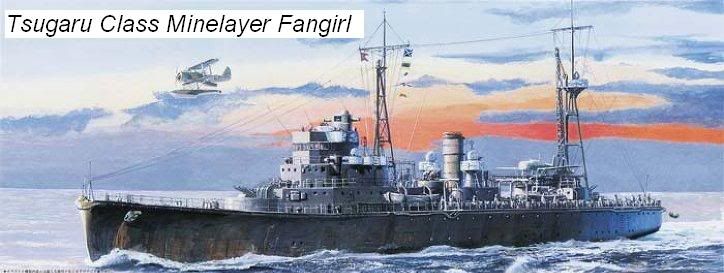aspqrz02
Posts: 1024
Joined: 7/20/2004
Status: offline

|
quote:
ORIGINAL: BattleMoose
This has come up before, and the idea that we are using today's values to judge historic actions. But it should be okay to judge historic actions with historic values, and the historic values were certainly a respect for the protection of non-combatants in war.
There was outrage in WWI, regarding German treatment of Belgium citizens (perceived Guerrilla fighters). The treatment of Boer civilian populations by the British in the Anglo-Boer war was regarded as a moral wrong. There was moral outrage at the sinking of the Lusitania, killing many civilians, American civilians, moral outrage, even though she was a valid target and carrying war munitions. Didn't stop the moral outrage of killing civilians.
From the 1907 Hague convention.
quote:
Article 25: The attack or bombardment, by whatever means, of towns, villages, dwellings, or buildings which are undefended is prohibited.
Article 26: The officer in command of an attacking force must, before commencing a bombardment, except in cases of assault, do all in his power to warn the authorities.
Article 27: In sieges and bombardments all necessary steps must be taken to spare, as far as possible, buildings dedicated to religion, art, science, or charitable purposes, historic monuments, hospitals, and places where the sick and wounded are collected, provided they are not being used at the time for military purposes.
It is the duty of the besieged to indicate the presence of such buildings or places by distinctive and visible signs, which shall be notified to the enemy beforehand.[2]
While these clauses relate to land and naval bombardment, the moral understanding of the appropriate behavior of bombarding (aerial or otherwise) is absolutely there.
It is possible that you do not understand the significance of the wording of these articles ... I would commend to you the commentaries on the Hague and Geneva Conventions available on the ICRC website as well as the US Army FM on the US interpretation of the Laws of Land Warfare (also available online).
The clauses in question do not, necessarily, mean what most laypersons assume they mean and, indeed, the commentaries I mention make that most clear.
Clause 25. "Undefended" is the key here. All German (and British) cities were 'defended' ... this was taken to mean that they had active and/or passive local and or national air defence systems. Even a single AA gun or Barrage Balloon anywhere in the vicinity was enough ... heck, the stationing of any Fighters of any sort anywhere within a couple of hundred klicks was regarded as enough.
This was acknowledged as a problem in the inter-war period and all major powers tried to come to some agreement of how to update laws clearly unsuited for the new technology to some that were ... and they failed, miserably. They could come to no mutually acceptable agreement.
That self-same problem remains. The recent(ish) decision by the International Court over the legality of the use of Atomic Weapons made a similar decision ... it said that first use was probably not acceptable, but follow on use was ... and, of course, the US and USSR do not accept the judgement (and, afaik, neither do the other nuclear powers), so the decision is like fairy floss, nice, but ultimately of no nutritional value.
Clause 26 has the same sort of problem ... "Except in cases of assault" ... or, to put it another way, you do NOT have to give warning if doing so would give away your plans in such a way as to increase your casualties, even if not doing so would cause increased civilian casualties.
Reality bites. Air attacks are, in that definitive sense, "assaults" ... and no warning need be given.
In fact, the only case(s) where such warnings would normally be given would be in sieges ... where you would warn the besieged that you were going to attack at some undefined time and would, perforce, be unable to direct the attack so as to ensure no civilian casualties would be caused ... putting the onus on the defenders.
Which is fine, as far as it goes, but the Hague Convention then allows as how the besieger may FIRE ON CIVILIANS ATTEMPTING TO LEAVE A BESIEGED PLACE, and, indeed, kill them, even if they are unarmed, because that would be placing a military advantage in the hands of the besieged military forces (that is, allowing them to hold out longer by ridding themselves of useless mouths to feed, provide medical aid for, and protected shelter for) ... so, in fact, the provision is not at all what most uninformed people assume is the purpose of the Hague Conventions.
Article 27. "As far as is possible" ... don't you recognise weasel words typical of lawyers? With the level of accuracy available to Bombers in WW2, or even today, you cannot come even close to guaranteeing no 'collateral damage' ... all you are required to do is, really, state 'I am attacking that factory producing military equipment over there ... it is really sad that 95% of my bombing will be so inaccurate that it will miss by up to several miles and even sadder that the factory is surrounded by worker housing etc. which will inevitably be collateral damage."
The key for understanding the Hague and Geneva Conventions is that they are meant to *reduce* the inherent nastiness of war ... NOT eliminate it.
They generally do a good job of that, even if after the fact (as with Nuremberg), but reality has little to do with what most uninformed bleeding hearts believe.
The Postwar conventions have not been universally adopted, especially by the US, and, if you read their actual wording closely, again are so full of weasel words, exceptions, exclusions and all sorts of wriggle room as to be completely unfit for the purpose said uninformed bleeding hearts often assume they have.
Sherman had it spot on ...
quote:
You cannot qualify war in harsher terms than I will. War is cruelty, and you cannot refine it; and those who brought war into our country deserve all the curses and maledictions a people can pour out. I know I had no hand in making this war, and I know I will make more sacrifices today than any of you to secure peace.
Phil
_____________________________
Author, Space Opera (FGU); RBB #1 (FASA); Road to Armageddon; Farm, Forge and Steam; Orbis Mundi; Displaced (PGD) ---------------------------------------------- Email: aspqrz@tpg.com.au |
 Printable Version
Printable Version









 ).
). 

 .
. 


 .
.

 New Messages
New Messages No New Messages
No New Messages Hot Topic w/ New Messages
Hot Topic w/ New Messages Hot Topic w/o New Messages
Hot Topic w/o New Messages Locked w/ New Messages
Locked w/ New Messages Locked w/o New Messages
Locked w/o New Messages Post New Thread
Post New Thread